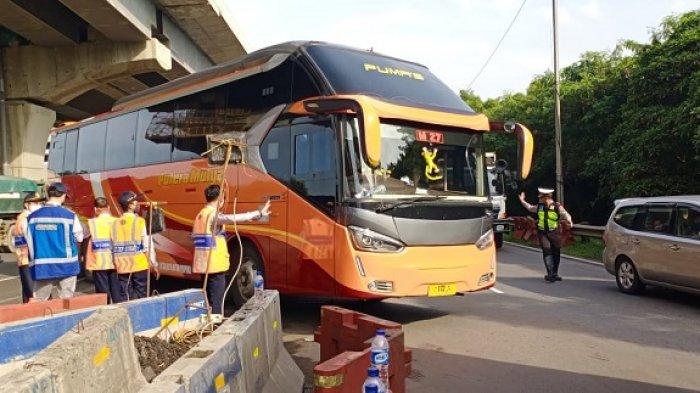Effectiveness the Prohibition of Long Distance Travel
By: TW Deora
The enactment of the prohibition period for going home (6-17 May 2021) has ended. Budi Karya Sumadi, Minister of Transportation said that today together with the Task Force and the Ministry of Health agreed to continue to tighten the examination of health documents for all passengers and road users in all modes of transportation. With the consideration that there is still a large potential for mobility that will be carried out after May 17, 2021, especially those from Sumatra Island to Java Island or from Central Java, West Java, and East Java to the Greater Jakarta area.
Budi Karya asked all transportation stakeholders to ensure that health protocols can be implemented properly in public facilities, such as terminals, stations, ports and airports. The number of officers and the intensity of their supervision must also be increased. This is done to prevent a potential spike in positive cases of Covid-19 as a result of travel after Eid, which will still take place within the next week.
After the homecoming prohibition period ends, the requirements will again refer to the Addendum to Circular Letter Number 13 of 2021 from the Covid-19 Handling Task Force. The additional clause in the SE provides that the government tightens travel conditions for 18-24 May 2021 which apply to air, sea, train and crossing travelers.
The requirements referred to are the obligation to show a negative Covid-19 test result from RT-PCR or a rapid antigen test or GeNose C19, the sample of which is taken a maximum of 1×24 hours before departure. Meanwhile, for land travelers, the implementation of the rapid antigen random test will be extended, especially on the national road to Jabodetabek. Together with the Task Force and the Ministry of Health agreed to continue to tighten the examination of health documents for all passengers and road users in all modes of transportation.
In implementing the homecoming ban, his party noted that during the period 6-15 May 2021, in general there was a decrease in passenger mobility in all modes of transportation by up to 84 percent. The highest decrease occurred in air transportation, where the average daily passenger fell by 93 percent compared to April 2021. Meanwhile, transportation for logistics did not decline, in fact there were several increases.
With positive cases of Covid-19 increasing in the Sumatra region in the last few weeks, it is necessary to tighten up at the Bakauheni Port, Lampung. So that since May 15, 2021, a provision has been imposed on prospective ship passengers to bring rapid antigen results.
Seeing the addition of 4,295 new cases of Covid-19 in the last 24 hours, common strategies in reducing the risk of transmission such as maintaining distance, isolating cases, and contact tracing are based on limiting human-human interactions. One popular strategy for controlling human-human interactions around the world is travel restrictions. Travel restrictions have limited use for infection control. So it is more effective to control the spread of Covid-19 at the local or domestic level than trying to control the epidemic at the border.
The government can exercise the Limitation of Community Activities (PPKM) by imposing penalties for people who do not comply with the rules so that they are not desperate to travel outside of emergency needs. These rules were made so that the public could realize that the Covid-19 pandemic had a negative impact on the economy, society and mentality. The government’s efforts mentioned above are in order to balance the economy and public health while minimizing the risk of a spike in Covid-19 transmission. So that the big dream is to achieve a condition where members of the public can refrain from traveling out of town, whether emergency or not voluntarily, whether it is prohibited by the government or not.
- The author is an observer of government policy.
